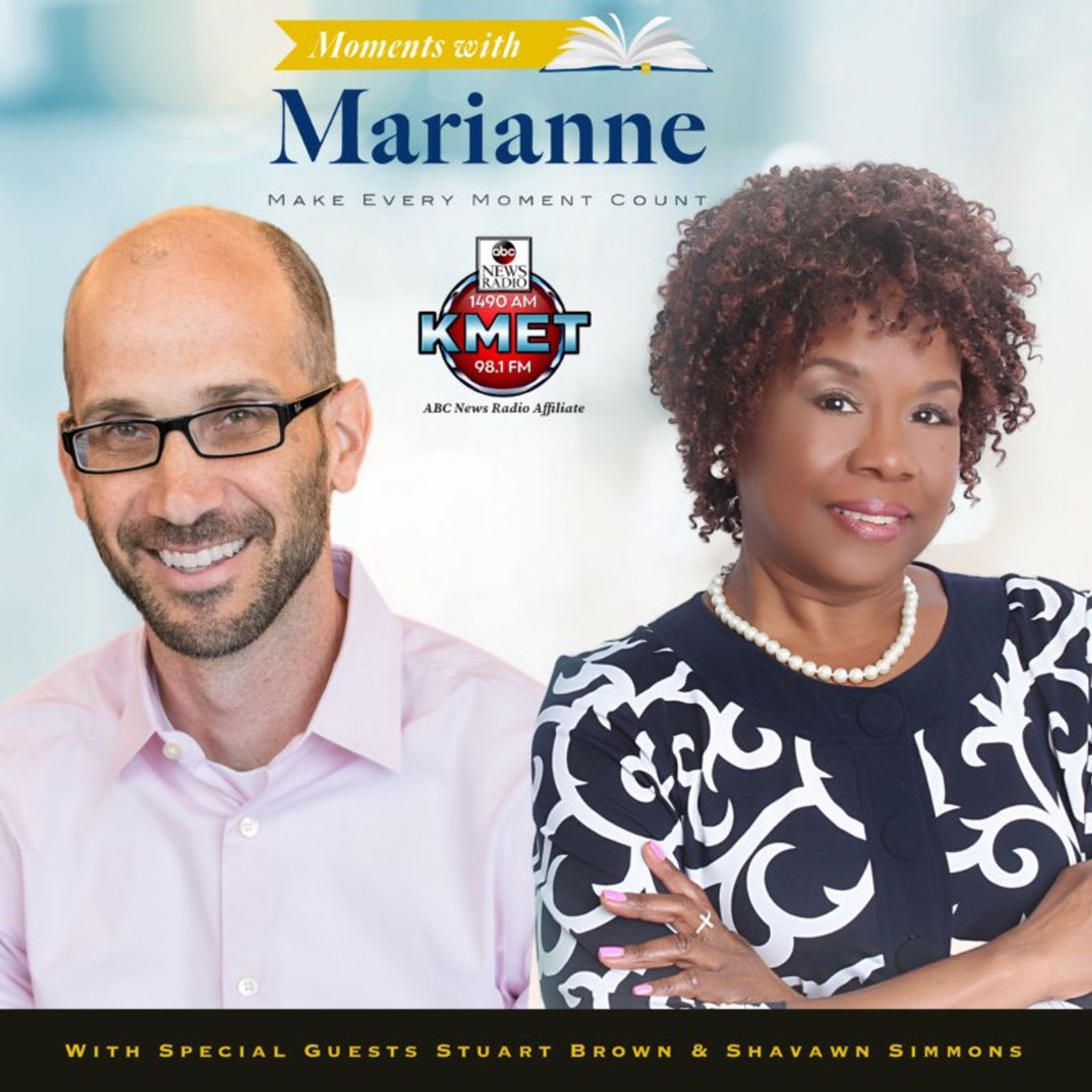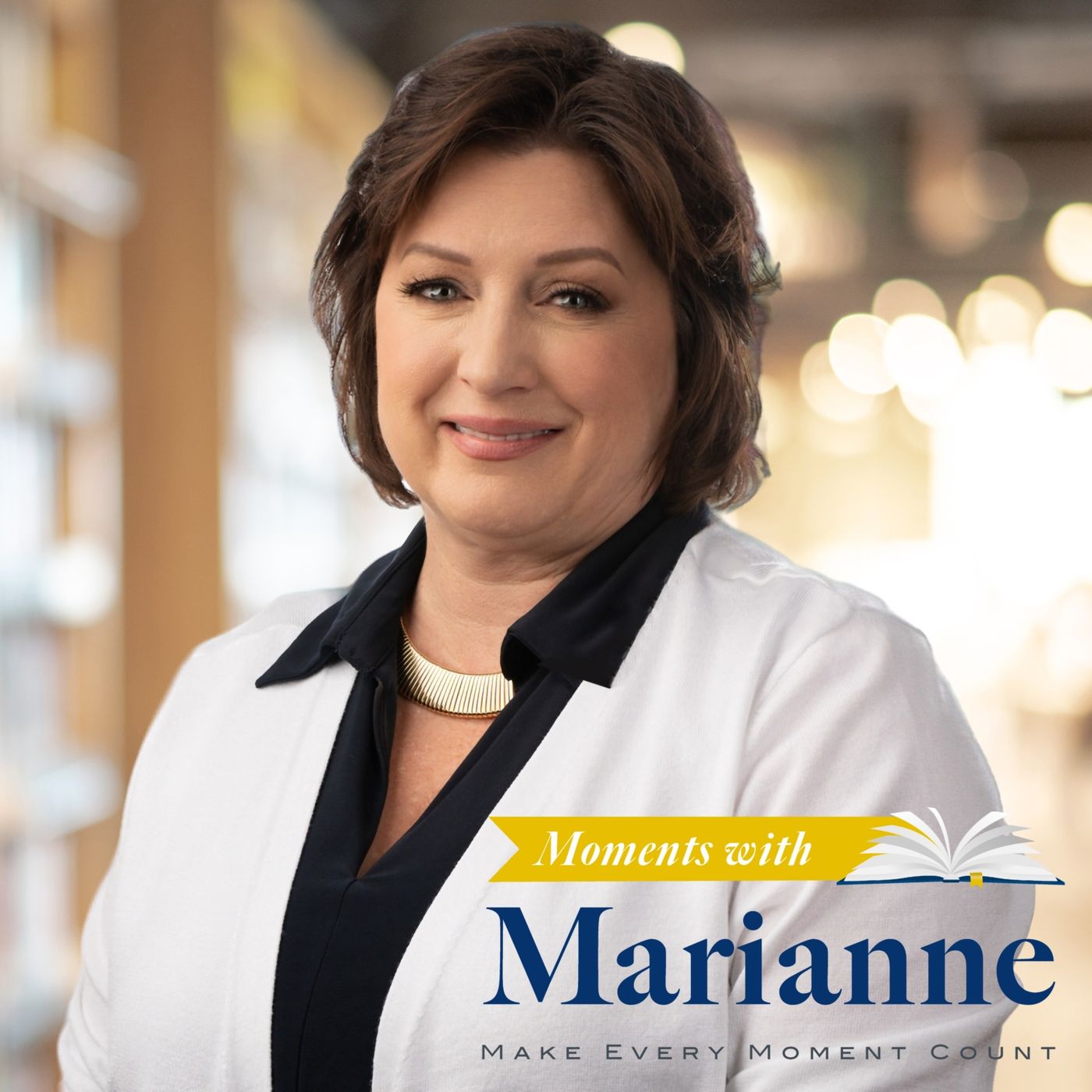Welcome to Moments with Marianne.This is your host, Marianne Pestana.And we're here today with special guests, Stuart Brown and Siobhan Simmons, who are here to share with us Sonic Drive-In's LimeAids for Learning.
In honor of National Book Month, Sonic Drive-In is partnering with DonorsChoose and Little Free Library to take action.
Joining us today is Stuart Brown from the Sonic Foundation and Siobhan Simmons from Family Literacy of Georgia, representing Little Free Library to share ways we can all make a difference.So welcome to the show, Stuart Brown and Siobhan Simmons.
Thank you.Oh, my goodness.What an honor it is to have the both of you here.Stuart, why don't we start with you?I mean, it's so fantastic to see how passionate Sonic Foundation is about literacy.Can you tell us more about the latest initiatives?
Um, of course, I mean, look, let me just give a little bit of context.
Sonic has been fired up and supporting literacy and educational, um, and schools for years and years and years since 2009, we've given nearly $28 million to support America schools.
Uh, but specifically our latest initiative is, uh, to support national book month.Uh, we were working with two incredible partners.One is donors choose.The other is little free library.
Just last week, through DonorsChoose, we gave $1.25 million to partner with America's teachers to make sure they have the music books, the math books, the science books, whatever kind of books they need to best prepare our students, right?
And already, the great news is that 4,500 of those projects have already been completely supported and filled, and they don't need any more help.
However, there's still another 12,000 projects out there that need some partnership so that we can make sure those teachers have the resources they need to do their jobs well.That's not the only partner.
The other partner is Little Free Library, and Sonic is working to put Little Free Libraries and Book Deserts across America, and we're super fired up about that partnership as well.
Okay, so you touched on a few things that I would like to cover as well.So when we talk about, you know, Book Deserts, what is that?
A book desert is a term given to an area that has limited resources as it relates to books.It is, I call it the sister or the stepchild of food deserts, where they don't have easy access to quality books and resources.
And this term was coined by the Unite for Literacy organization after research that told them
that if an average household has less than 100 books as a household or 25 books per age group, that more than likely that child will be behind in academics by about two years.
So the sweet spot for books in the home is about 25 or 100 for the whole household, thereby helping us to eliminate what's called a book desert.
Well, thank you for going into that.And Siobhan, can you just share with us your experience with Little Free Library?And I know we're kind of talking about why book access is so important, but I'm sure there's so much more to that.
Well, actually, book access is the bottom line.We often make assumptions that everybody has access to books.When I talk to people, they often say, well, don't they go to the library?Or isn't there a media center in their school?
All of that could be true.But having a tool right in your community, such as a book sharing station, which I describe as a little birdhouse on a post, is a great opportunity to provide easy, free access to books.And so that is the bottom line.
If kids have books that they, A, see themselves in, if they have books that they can, the language speaks their language, whether it's a native tongue or just the slang that they use, all of that is important to helping kids engage in a more positive way.
And we're not treating it like a punishment.
So, Stuart, and I want to follow up with the same question with you, Siobhan, as well.What is the best way that we can get our audience involved in National Book Month?
Well, I love that question, and we've tried to make it as easy as possible for your audience to get involved.Two easy steps you can take.
One is go to DonorsChoose slash Fill Every Shelf, and you'll see all the projects that are listed out that are just looking for partners to come in and help make sure those teachers have the resources they need.
Another fun way, and just as a powerful way to partner with us, is go down to your local Sonic Drive-In, purchase a drink, a shake, or a slush, anything that you can sip.
A portion of that sale will go to support our Lineage for Learning platform, which is one of the platforms we use to support education across America.We just usually say, you sip, schools win.
And for a Little Free Library, we invite you to go to the littlefreelibrary.org website where you too can register for a Little Free Library book sharing structure, which is really behind this, and get your Little Free Library.
Such great resources.And Siobhan, so how can families promote literacy at home?What are some steps that they can use?
One of the first steps I would say is make reading a reward. We were just chatting and we learned, I learned, that with Stuart and his son, it's a reward.Do your chores, you get to read.
And if we start that at a very, very early age, it helps kids get into the swing of things as they don't think of reading as a punishment.And oftentimes adults will do that.They'll say, go to your room and read.
and it makes it tougher for teachers like myself.So we just think that if you start and let them pick their own books, which research says when children pick their own books, they're more likely to enjoy them.
I mean, look, I can just add to what Siobhan said, which is, I think when kids see their parents reading, when you talk about the books, when they see books around, when you let them choose the books they want to read, it's a home run.
You know, we were talking earlier, I've got one son who has been, has loved to read from the time he could even make out letters, right?The other son, it took him a little bit, but once he found a series of books that he's all in on,
He is all in on it.He can't wait for us to say, go to your room and read.He loves that.But they really have to see it in their parents, and they need to see it in the adults in their household.
And I think what they see modeled, they're going to do as well.
Absolutely. doesn't make it that much of a punishment if they love doing it, right?It's a reward.
Yes, starting off as a reward.And there's so much of a variety of books now that publishers can do better, but there's still a variety of books that really can identify anything kids like.
I always tell parents, find out what your child likes to do and then make it an adventure.If you've got to start at the public library, make that an adventure.If you start at the public library, make it a reward that they get their own library card.
Then they're preconditioned to selecting books on their own, so now they're back in the community and as a family, You can invest in a free, little free library structure, book sharing structure.It brings community.It encourages kids.
They see it in the neighborhood.They wonder what it is.You open the door and there's just a bevy of free books.So just try it.
I was so surprised by the stats that talk about just fourth graders, like how well they do.I mean, can you share a little bit about that with us?
Absolutely.One statistic that I like to always share is the National Educational Assessment of Progress, which is a federal government test, standard test that's given throughout the US to a select group of kids.
When I say a select group, a sampling of children.And one of those field questions was, do you have books in the home?
And that field question enabled the researchers to determine that they correlated the score of their reading portion of that assessment with the number of books the child indicated that they had at home.
And what they determined from that is that on average, if a household has less than 100 books, more than likely their child is at least two grade levels behind with reading.And so that's the benchmark that we use per household.
And that's also the benchmark we use when we start talking about book deserts, because the book desert data is based on census tracts. and income.
And so there is a correlation between the children, what books they have in their household, and our reading minus out textbooks.Because textbooks already designate, not designate, but connote that it's work.
And so when you select out and minus out textbooks, and you just look at books that either reflect a child's existing life or a life they aspire to have, it makes a big, a huge difference.
And the biggest piece I can say, and I know adults don't like to always admit this, but they don't always like to read either.So just like Stuart said, I was blessed to have a mom that loved to read.
And so for me, going to a library was an excursion, and it would be helpful if more adults read at home.And then they don't leave their kids after middle school.They should still read.
Believe it or not, older kids will tell you they don't want to be read to. If you read to them, it's a beautiful way to bond and to teach.
Really allows people to have that community, foster that education.And my goodness, we can just support this great initiative.Well, Stuart and Siobhan, thank you both so much for taking the time to be on the show with us here today.
Oh, thank you for inviting us.
Thank you for having us and telling our story.
Well, thank you, Stuart and Siobhan.It has been such an honor to spend this time with you and to talk about Sonic Drive-In, LimeAids for Learning.
To learn more information about how you can participate, visit LimeAidsForLearning.com and LittleFreeLibrary.org.Well, we're at the end of our time today.I'd like to thank everyone for tuning in.
You've been listening to Moments with Marianne, where we make every moment count.
In a single moment, your life can change.Moments with Marianne is a transformative hour that covers an endless array of topics with the best of the best.
Her guests are leaders in their fields ranging from inspirational authors, top industry leaders, and business and spiritual entrepreneurs.Each guest is gifted and a true visionary, a recognized leader in her own work,
And while teaching others to develop, refocus, and grow, Mary Ann will bring the best guest and sometimes a special surprise.Don't miss this.You never know just which moment will change your life forever.
Make sure to tune in and visit momentswithmaryann.com for more information.
 Sign in
Sign in Sign in
Sign in Sign in
Sign in





























